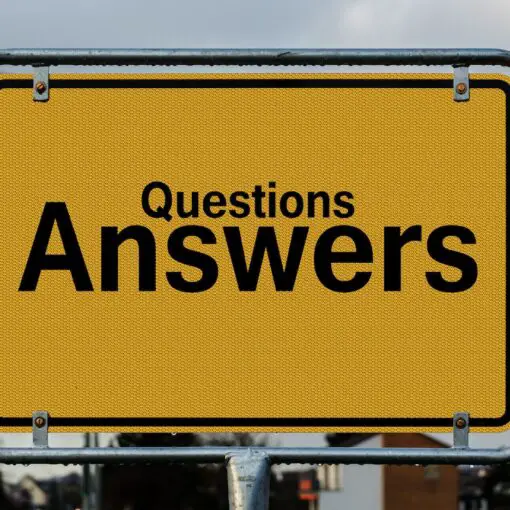Some scientists have concluded that traditional intelligence tests don’t accurately test the critical thinking required in making real-life decisions. Hence, many people often consider intelligence and critical thinking as the same thing. However, they are two different concepts.
When it comes to defining critical thinking and intelligence, researchers use several different standards to identify differences. For instance, scientists found that critical thinkers are more likely to have better well-being and longevity than only intelligent individuals.
This finding means that critical thinkers are more likely to practice healthy habits that lead to better physical and mental outcomes and live longer than intelligent people. According to Dr. Heather Butler, individuals with a strong critical thinking capacity encounter fewer negative life experiences than those who are only intelligent.
So what’s the difference between intelligence and critical thinking?
Critical thinking refers to the group of cognitive skills that assist humans in using rational thought in a goal-oriented manner and using these skills at an appropriate time.
On the other hand, intelligence has several definitions in psychology; some scientists believe it is a distinct ability while others believe it to be a collection of capabilities. However, it is generally known as the capability to discern, deduce, and react to information while still applying knowledge. Intelligence is often associated with adaptive behavior whereby a person uses experience to respond to a specific situation.
Critical thinking primarily relies on flexible thinking that requires you to analyze available evidence, identify fallacious information, and make an informed decision. Intelligence mostly relies on logic, shared understanding, and learned knowledge when making decisions.
The techniques used to measure these two abilities also vary. When measuring intelligence, you will use an intelligence quotient (IQ) test to assess the individual. Such tests involve several sub-tests that measure a person’s spatial skills, such as understanding, reasoning, and memory.
In contrast, critical thinking tests use analysis, assumption, inference, and deduction to measure a person’s ability to make logical conclusions after thinking critically. Critical thinking tests measure how you can use analytical thinking skills to solve variable real-life challenges.
There is also a variation between intelligent individuals and critical thinkers when it comes to personality traits. For instance, smart people are often highly adaptable to new environments, curious, and individualistic. By contrast, creative thinkers are objective-driven, critical analyzers, creative thinkers, and effective communicators.
Is critical thinking more essential than intelligence?
When it comes to hiring, many firms look at potential workers’ intelligence and even administer IQ tests as part of the interview process. However, Scientific research shows that critical thinking skills may be more necessary in making sound decisions.
To live a healthy, financially stable life, you need critical thinking to know what you should or not do. With critical thinking, you can make more meaningful relationships, avoid scams and blunders, and live a more meaningful life.
Although IQ assists you get higher scores in examinations and can land you a successful career, scientific studies show that intelligence alone doesn’t guarantee a prosperous, healthy, and long life.
To help you understand the variations between these two abilities, kindly consider the following scenario. Picture this; you’ve purchased a brand new, top-notch PC with optimal processing power and storage but decide to install an old, outdated operating system software. What is likely to happen?
You will realize that the PC will be incredibly slow in processing information and performing simple tasks. This occurrence will occur because the low-quality software system can’t use the processing power optimally.
In this scenario, intelligence is the processing power and storage, whereas critical thinking is the operating system software. If you lack proper essential skills of thinking, likely, you won’t be able to make quality real-life decisions.
To further support this claim, Dr. Heath Butler, an assistant professor at California State University, conducted a study involving 244 participants. Her research aimed to determine whether critical thinking or intelligence helped people make better future decisions on real-life events.

In the IQ test, Dr. Heath provided a standard test that measured memory, reasoning, and optical processing. Critical thinking tests measured predictive analysis of hypothetical scenarios whereby individuals analyzed contextual information and made decisions.
This psychological study found out that individuals with high critical thinking and IQ scores encountered less undesirable life events such as credit card debt, criminal arrests, and STDs. However, it is essential to note that Dr. Heath also concluded that purely between intelligence and critical thinking, the latter helped people predict life experiences and helped them avoid bad ones more significantly.
These findings deduce that you can be intelligent and still make bad life decisions without knowing it. What most intelligent people encounter when making unwise decisions are logical fallacies.
A logical fallacy is when an argument isn’t based on sound judgment, but most people still think it’s true. For instance, the gambler fallacy is whereby an individual believes that continuous betting increases their odds of getting the jackpot prize. In a real sense, you could bet for years and still have the same probability of winning as someone who gambled once.
Intelligent people are more prone to logical fallacies because they rely more on logic and their knowledge when making decisions, whereas critical thinkers use daily life intuition when making decisions.
Other issues prevalent among intelligent individuals that aren’t common among critical thinkers are heuristics. A heuristic is a form of psychological shortcut that helps individuals to resolve problems quickly and efficiently. Heuristics serve as rule-of-thumb techniques that rely on memory to make quicker day-to-day decisions, such as deciding what to eat and where to go after work.
Intelligent people who rely on heuristics are more prone to make errors because a past remedy might not be useful in the future. Relying too much on heuristics can also affect creative thinking. Creative thinkers rarely depend on heuristics during decision making and don’t normally encounter such issues.
Conclusion:
Intelligence and critical thinking are essential abilities used in daily activities such as learning, working, and solving life issues. However, they are two different concepts and comprise varying skills. Finally, scientific research shows that you can learn both intelligence and critical thinking abilities over time. If you open your mind to new learning possibilities, you can start improving on them today





